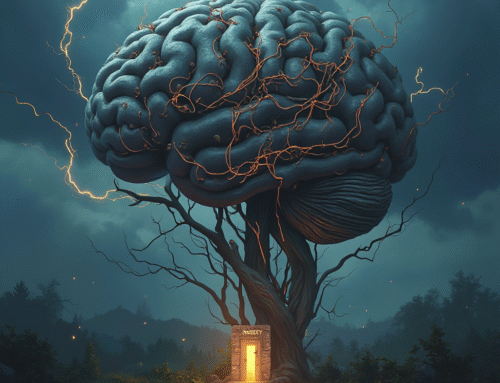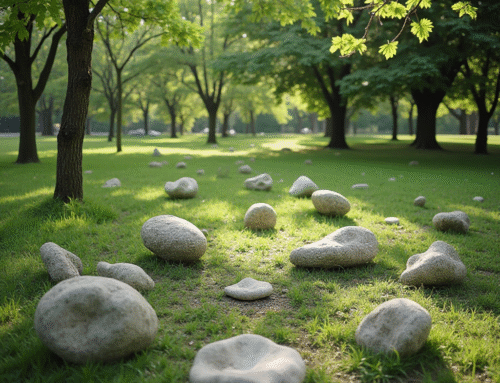Unlocking the Night: The Science Behind Late-Night Study Success
Unlocking the Night: The Science Behind Late-Night Study Success
Unlocking the Night: The Science Behind Late-Night Study Success
With the setting of the sun and the world slowing down, there is an alternate source of energy in the atmosphere that is the energy of untold numbers of students studying past midnight in an attempt to achieve academic success. Studying late has become a customary affair in colleges and home worldwide, and this time more students than ever are making use of these dark hours to study their work, look over their notes or prepare to take an exam. But what is so attractive about late-night studying and is there any science to this up and coming practice?
Amazingly, the brain does not work the same way at night. When we are late at night, distractors dissipate and we usually enter into a special state of concentration and creativity of the mind. It has been found out that in some, cognitive performance and memory are better at night, because the brain circulations are subject to natural rhythms which set the brain to deep thinking and problem solving modes.
Night owl by nature or just need something new to gain an advantage in your academic pursuits, knowing the secrets of the late-night learning might provide the key to some huge benefits. Wonder how to maximise your midnight study sessions? Read further to learn how science, tips and tricks, and stories of how other people succeeded could change your way of learning – regardless of what time of the day it may be.
The Art of Late-Night studying
Studying late has always been a topic of interest particularly when the students want to get maximum out of their study at times when there is minimum noise. When the sun goes down and the whole world becomes still, the brain does not just switch off but it changes gear.
Some areas of the brain associated with creativity and problem solving increase in the late-night hours and the distractions caused by daily activities are minimized to a considerably low level. This special activity of the brain is capable of attaining great concentration, which enables the learners to get into in depth reading without interruptions as is common in the daytime.
Studies conducted on memory recall and nocturnal cognitive activity indicate that there are a few unexpected results. Research has indicated that to some people especially the so-called night owls staying late in the evening can result in enhanced retention of new information.
The process of converting the short-term memories into the long-term ones (consolidation of memories) is frequently practiced in the course of sleep. So as a matter of fact, one can study just before sleep, and it can encode new information and recall facts and concepts more easily. As an example, a psychology student studying flashcards at midnight might observe that the student recalls the important terms better upon getting a good rest.
It is however worth noting that the body has natural rhythms referred to as circadian rhythms which affect the effectiveness of learning. These are biological clocks that determine the time of day when we are alert and the time of day when we are tired. Whereas there are individuals who are at their best concentration and energy in the morning, some reach their stride in the late evening.
It is essential to know your own rhythm, when you are mentally alert as the world is drawing to a close, it may be to your advantage to study late. However when you are struggling with eyelid twitching and slow thinking, it may be an indicator of your brain being more active earlier in the day as suitable to learning.
Finally, according to the science, the phenomenon of studying at late hours is not necessarily effective or harmful, but it depends on the differences in brain activity and personal habits. You can actually unlock a secret to greater learning results by listening to your own body, and trying out different periods to study to determine when you are at your fastest and most effective in concentration and memory-to-retain information.
Good Things about being up late
Among the most apparent benefits of studying late in the night is the evident decrease in distractions. As the environment around you calms down, a kind of calmness prevails in the air, no ringing phones, no busy corridors, or even emails to distract you.
Such a conducive atmosphere enables the students to deeply concentrate on their academic activities and therefore it is much easier to implement learning strategies where concentration of attention is paramount like active recall or spaced repetition. To most, this silence makes late-night hours their best hours of study, when they are the most productive and focused.
In addition to increased concentration, nighttime may inspire creativity and raise the ability to solve problems. The distorted chemistry in the brain at the late times (the change in the activity of the neurotransmitters) may promote thinking outside the box and inventive way of tackling difficult tasks.
Indeed, examples are given of students working on difficult mathematical problems or generating ideas on essays, and finding that it seems solutions can readily come through once the demands of the day are long since passed. This inventive kick is particularly worth it when an area or a project would use outside the box thinking.
Some learners have also been found to have better information processing and retention due to late-night study. The reduced interruptions in the learning process enables the mind to flow smoothly through the learning processes, which in turn enables the learning students to assimilate new information more efficiently.
Research indicates that retrieval rehearsal before bed can be beneficial in strengthening memories so that they are easier to recall when one is in an exam. With these non-distracting periods and with the help of effective learning strategies, students will be able to reap the most of their studying experiences and utilize the late nights as potent sources of academic development.
In final, although best time to study is different under every circumstance, the advantages of studying late will enable more learners with poor concentration of their daytime to focus on study or gain a competitive advantage of creativity. It is all about finding what kind of environment and schedule will work best with your own learning style – and not being afraid to be innovative about something that might work better.
Hello! It appears to be the message that you sent is test. In what way would I help you with your request? In case you want me to write the article according to the outline and the instructions above, simply notify me and I will be on my way!
Myths about Late-Night studying
In spite of being popular, late-night studying is a topic that is still misinterpreted with numerous myths that tend to intimidate students towards trying out what they find to be the best studying method. The most common myth is that any type of late-night study automatically results in sleep deprivation and low grades.
Although memory and cognitive function are undoubtedly impaired by chronic sleep deficiency, neuroscience of learning studies indicate that timing of sleep and study behaviors is not important but the quality of sleep and the study habits. To illustrate, when a student learns to study late at night and afterwards still obtains sufficient restorative sleep, his/her ability to memorise and academic performance may not be impacted.
The other general issue of concern is the possible detrimental effects on general health of the nocturnal study practices. According to critics, nighttime sleep disturbing effects on the body manifests as fatigue, moodiness, or a low immune system. Nonetheless, current research has discovered that people vary in their chronotypes, some of them are more productive and alert in the evening. Through proper scheduling, incorporation of healthy snacks, hydration, and scheduled breaks, the late-night learners would be able to take care of their well-being and maximize their study time.
There is also the need to differentiate between a good study at late night and last minute cramming. The latter can be a sudden consumption of vast amounts of content without a significant interaction or comprehension, which is obviously less effective, according to neuroscience of learning, to respond to over time.
Conversely, organized late evening sessions studying involving active learning methods such as self-test or condensing ideas can also increase memory consolidations particularly in combination with enough sleep. As an example, a student who studies important concepts at midnight and sleeps seven or eight hours before going to sleep is bound to remember information more than that student who does not sleep and instead spends an entire night all-nighter studying.
Finally, the myth-busting of these myths allows students and teachers to value different productive study habits. Knowing more about the science of how our brains perceive information at various times and knowing the individual differences in how we learn, learners can make wise choices about when and how they learn optimally. It is all about being consistent, taking care of oneself, and being engaged with the material regardless of the time set when the clock shows it.
How to combine Late-Night Study Sessions with Healthy Habits
Although studying late provides opportunities to have an engaging and productive study time, it is essential to make sure your academic benefits are not achieved at the cost of your well-being. The sleep hygiene, or the set of practices that can assist you in getting a good rest, is one of the most significant factors.
Although, it is difficult to study at the last moment, a regular sleeping schedule and relaxing before sleep with the help of some simple exercises such as gentle stretching or reading (no academic) can help a lot. Research indicates that students who follow hygiene of taking good sleep despite late-night classes perform better in terms of memory consolidation and cognitive functions the following day.
Another important tip is incorporating breaks and relaxation methods to maintain the productivity of such quiet time. Rather than laboring all night long, you can use the Pomodoro Technique: study at full speed, 25 minutes, then have a five-minute break to stretch, meditate or just breathe deeply looking through an open window.
Such micro-breaks do not only lessen eye stress and mind overload but they also rejuvenate your mind, and thus the new information is easy to internalize. Other students vow on quick evening strolls or listening to relaxing music as a mechanism of taking a break between study periods.
The role of nutrition and hydration in the process of effective late-night studying is surprisingly high. You will be tempted to grab some sweet food or caffeinated soda, but these may lead to energy crashes and abnormal sleep in future. Instead, you want to eat healthy snacks such as almonds, yogurt, fruit or whole-grain crackers because these are going to give you sustained energy, but you will not spike your blood sugar.
Always have water close to keep oneself hydrated, dehydration can also affect concentration just as much as a lack of sleep. Herbal teas like chamomile or peppermint will work as a calming alternative to caffeine and will make you relax without being sleepy.
In the end, it comes down to achieving the balance between late-night study time and healthy lifestyles to listen to your body and prepare to succeed in your studies and be well personally. Test various habits to see, which routines make you feel refreshed and concentrated and you receive sufficient rest and food. A strategic study with mindful self-care will help you to enjoy the best of your late-night learning experience.
Case Studies: Incident Command: Successful Late-Night Learners.
In history, among the most significant thinkers in the world, we have heard them attribute their creativity and productivity to their study habits which took place late at night. An illustration of this is that Winston Churchill used to read, write and contemplate long after the world had turned its head.
Likewise, when she was also a Nobel Prize-winning physicist, Marie Curie many times did her revolutionary studies more easily and successfully during the night, trying to enjoy the silence and the lack of people that could distract her mind. These legendary personalities prove that the silence of the night is the place where ideas can grow and discoveries can be made by some of the people.
These sentiments are reflected by the experiences of modern students. Consider the case of Maya a sophist in college with a major in engineering who discovered that she could be most productive in her studies after midnight. As the life in the campus was slowing down and all distractions disappeared, she could concentrate on the demanding problem sets and learn intricate concepts more effectively.
She says that she has a problem relating to concentration at school, but at night, she thinks she is less distracted and can really get into her studies. Another student, Alex, could do a part-time job and attend classes cutting late-night hours to study. He attributes this practice to having enabled him to keep track of his assignments as well as fulfilling his financial obligations.
One of the main lessons of these stories is that successful late-night learners tend to find a solution to fit their studying patterns within other spheres of life. It could be that it is establishing limits on how much they rest or just making sure that they take a few breaks after work to avoid burnout, otherwise, these people learn to listen to their bodies and change their habits.
They also attach importance on self-awareness- being aware of how late night study works to their productivity or degenerate returns with the study. The bottom line is that, according to their experiences, late-night studying can be an effective academic and self-improving tool when carefully planned and taken care of.
When and When Not to Study Late
Although there are benefits to studying late, not all people can study late. Among the initial reasons why you may find that this technique does not work well with you is inability to feel good the following day after a full night of sleep and cannot concentrate. In case you are having a hard time remembering what you studied last night, or your grades start to decline, though you study late in the night, it is time to reevaluate your study schedule.
There are those who are just morale morning larks and they work best when dealing with difficult material in the morning. In the case of these people, late-night sessions should not be forcibly imposed because it will tend to slow down learning and retention.
There are also certain conditions when studying during the early morning or the daytime is more efficient. As an example, all students who require to match their schedules with office hours or coordinate their schedule with study groups will have an opportunity to take advantage of the regular daytime availability.
Individuals who are planning to study in the morning and write exams in the morning should be able to practice recall and problem-solving in the mornings in order to perform optimally. Moreover, studying during daytime may be more convenient to learners who have to balance their day with extracurricular activities, employment, or family obligations.
Understanding your own boundaries is of great importance to the long-term well-being. When studying late causes chronic insomnia, irritability, or stress, a definite indicator is that changes must be made. It is important to keep in mind that effective learning does not only concern the amount of hours that one spends in front of the books but the way your mind and body can capture and remember the information.
Trying various times of the day and recording your findings can also allow you to understand when you feel the most awake and productive so that you can make a personalized timetable that can assist you in reaching your academic objectives, as well as in maintaining your health overall.
Finally, it is always better to take care of yourself so that your studies at night will not damage not only your mind but also your body. It is important to listen to what your body tells you, and to be open to changing your habits in case you feel that they have an adverse effect. The balance between productivity and rest will enable you to meet your maximum learning potential- irrespective of the time of the day that you decide to study.
Finding a Balanced Approach: Late-Night Study to achieve maximum success
Studying late may provide some special benefits – more concentration, not as many interruptions or even creativity and better memorization. With the right environment and good habits of staying energized through healthy lifestyles and efficient time management techniques, students and other lifelong learners can unleash the full potential of studying at late hours.
Nevertheless, one should be aware that the optimum time of study varies among different people. What is effective to one individual might not be effective to the other and by testing different schedules you will get to know when your mind is most alert.Finally, effective learning is all about achieving balance between productivity and well being. Making sleep hygiene, listening to your body and balancing your study time with self-care will make sure that the late-night studying will be a powerful tool instead of a burden.
Be flexible with your methods and keep in mind that it is always best to adjust your habits to your personal needs and will enable you to accomplish your academic objectives without becoming overly worn out, but, on the contrary, becoming healthy and refreshed.
Unlocking Late-Night Study Secrets for Better Learning
memory retention, cognitive function, brain activity, focus, learning techniques, optimal study time, complex subjects, nighttime productivity, study habits, neuroscience of learning,
Students, educators, lifelong learners, academic professionals, parents of students,









Leave A Comment